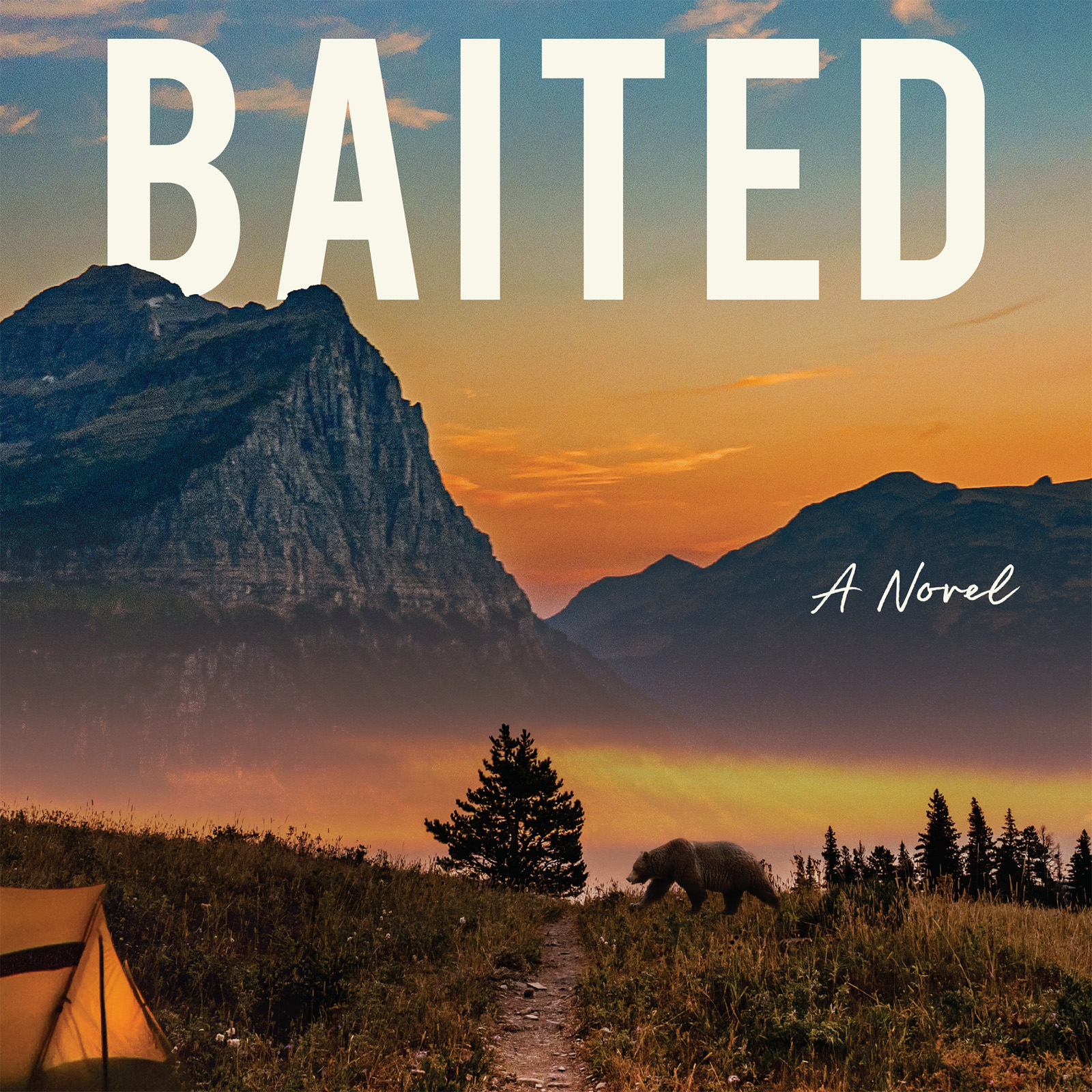Author Colleen O’Brien recommends for all Montana vehicle gloveboxes to contain a state roadmap and a copy of “Making Certain It Goes On,” the poet Richard Hugo’s posthumous collection. Hugo’s influence on O’Brien goes well beyond road trips assisted by the poet’s renderings of Montana. In her debut mystery novel, “Baited,” one of her main characters, a young trail crew worker in Glacier National Park, easily rolls lines from “Driving Montana” off her tongue. So, it’s no surprise that “trail dogs” have a literary bent, memorizing one of the state’s most iconic poets while clearing trail.
“Baited” reflects a bit of O’Brien’s personal experiences on Glacier’s east side where she and her family divide their time between the small hamlet of East Glacier and Kalispell. In the early 2000s, she worked for the park’s trail crew and taught English at Blackfeet Community College. With her husband, O’Brien operates several businesses in East Glacier including the Rock and Roll Bakery, Whistling Swan Motel, and East Glacier Park Trading Company. Her reverence for Hugo’s poetry began when she attended the University of Montana’s graduate creative writing program. Hugo once taught there, although several decades prior to O’Brien, who arrived by way of South Dakota.
In “Baited,” Clancy Dyer, the trail dog with an affinity for poetry, awakes to find her coworker missing and his tent shredded. The mystery novel takes place during the week around summer solstice in 2004 at the same time biologists are conducting a novel grizzly bear population study. Under O’Brien’s pen, she takes the actual unprecedented DNA study to determine the population of grizzly bears inhabiting the Northern Continental Divide Ecosystem, which includes the national park and the Bob Marshall Wilderness during the mid-2000s, and casts it into a thrilling, believable storyline. O’Brien used the project as inspiration, reimagining a more sinister element. In the book, lead researcher on the study, Liz Ralston, discovers that many of her hair-snag stations have been sabotaged, perhaps by trail crew workers like Clancy or local climbers, who question the cow-blood-and-fish bear bait method and the repercussions for the bears after they’ve been counted, one by one. And, like most summers in Glacier — fictional or not — an overworked district ranger receives a report of unusual bear activity at the Cut Bank campground.
During that week in June, when thunderstorms rip through the sky and the Middle Fork of the Flathead River surges with snowmelt from the high country, individuals attached to Glacier either by heritage or employment are lured into the backcountry to search for Clancy’s missing coworker. O’Brien’s novel captures the fervor and intensity of Glacier National Park summers, especially the microcosm of people who call this landscape home and their place of employment. Whether it’s a ranch owner in Babb or park service employees, O’Brien’s characters bear a fierce attachment to the place.
It’s a connection that O’Brien identifies with as well.
“I’ve had too many conversations with people who have a proprietary sense about Glacier. It is their park, and I love that,” she said during a recent conversation. “It’s a powerful place because of its intensity. There’s the beauty, there’s the wildlife, there’s the wind, the weather. There’s the extensive daylight in the summer and darkness in the winter. It’s this place of extremes, and I feel like what it does for people is it wears them down to the point that they can’t be anyone other than who they really are.”
The extreme nature of the park, which occupies her imagination, is the elemental force that shapes “Baited.” It’s a caricature-free mystery that grapples with the most essential questions in life about purpose, love, grief, and reconciliation. It’s not a clueless tourist, tempting a bear with a picnic basket or daring to swim in a frigid alpine lake, who slips up in O’Brien’s story. In fact, there aren’t any tourists of mention in this tale of life and death. “Baited” is the collision of horse packers, biologists, peak baggers, and rangers who feel most at home in a tent after an afternoon on the trail but are forced to confront death and revenge.
O’Brien’s novel captures a part of Montana that yields heartbreak, woven into a myriad of voices that tell a tale that thrills, and ultimately satisfies. This first-time novelist adds yet another impressive waypoint to the literary trail that Hugo himself helped blaze.
